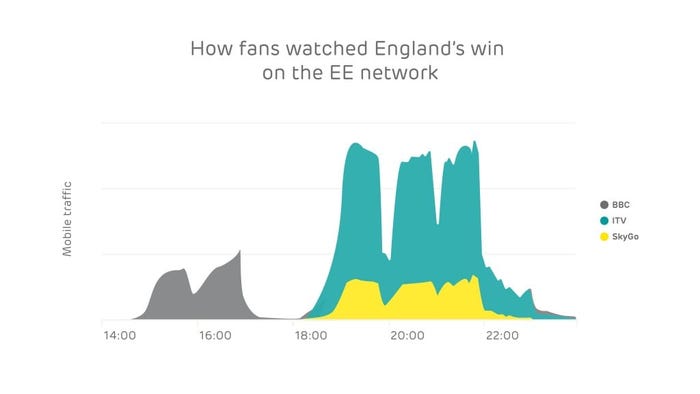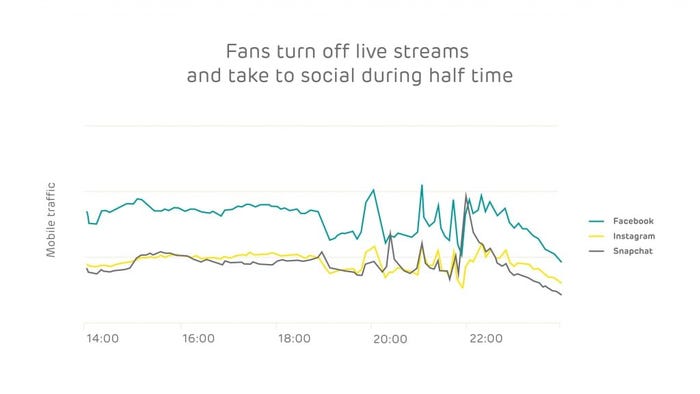EE and ITV data shows football watching is coming home
EE reported sharp drop in broadband traffic when World Cup matches are on, while ITV registered the highest viewership on England’s match against Colombia.
July 5, 2018

EE reported sharp drop in broadband traffic when World Cup matches are on, while ITV registered the highest viewership on England’s match against Colombia.
The ongoing FIFA World Cup is pulling users away from the internet and pushing them back in front of the television, it seems. If they have to go outdoors while the match is on, then people switch to live streaming on mobile. The chart below shows how viewers followed the matches on Tuesday 03 July:

A few factors may have contributed to the lower traffic registered during the Sweden vs. Switzerland match: it was still office hours therefore fewer people were out in the street; when streaming indoor the traffic would more likely go through Wi-Fi; and the relatively weaker following by the general public.
When the England vs. Colombia match was played, a World Cup record of 23.6 million watched it on ITV at home (the number of those watching in pubs are not available). The mobile traffic pattern also followed closely the progress of the match: peaks at the beginning of the match and the penalty shootout, canyons at half time, 90 minutes, then off the cliff after the last penalty was kicked (and scored).
An interesting data point is that around 1/5 of viewers watched the ITV live streaming through the Sky Go aggregator, despite that ITV Hub is free to all, as is the BBC iPlayer.
Equally interesting is the next chart, which shows mobile users’ behaviours when they moved away from live streaming. They went on social networks:

An eye-catching anomaly on the chart is that, right after the match was finished, the traffic generated by Snapchat overtook that by Facebook. As Snap users tend to be younger, this may serve as a reminder to Facebook that it may not be the default platform by the next generation internet users when they share their feelings.
Now the nation is increasingly excited with England in the quarterfinals for the first time since 2006, the match against Sweden, played next Saturday, will almost guarantee to generate higher mobile traffic and TV viewership, this time on the BBC.
About the Author
You May Also Like












_1.jpg?width=300&auto=webp&quality=80&disable=upscale)
